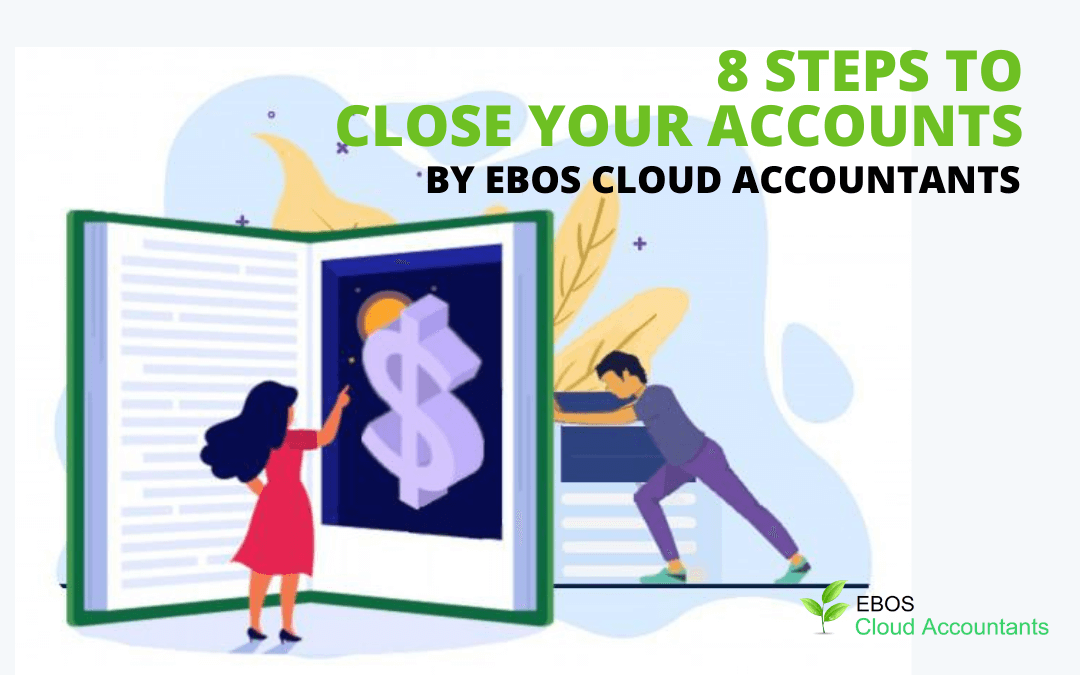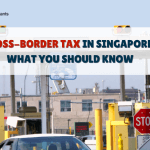Closing the books is a process performed by a Chartered Accountant. But most small business owners with fewer monthly transactions will skip this step. Cloud Accounting software may automate some steps every month, but it is still worth asking your accountant to close your books for you especially when you are operating a Private Limited Company.
It is important to understand the basic steps involved so you know what to expect from him or her. In my years as a REAL Chartered Accountant that provide training to customers and accountants, we realise that customers often have a misconception of the job scope between closing of accounts and compilation of financial report.
This article covers the method of closing books which will help you save thousands of dollars and reduce your tax liability by legal means.
1. Zeroing income and expenses
The books are business income statements and balance sheets. A business owner can close their books by zeroing out their income and expense accounts and then plugging net profit (or loss) into the balance sheet. Some accounting software will automatically close your income and expense accounts at year-end before adding your net profit (or loss) to your retained earnings account.
2. Opening Balance
Before you even get started on the accounts, you should ensure that you have the correct opening balance. Getting it right ensures that the new financial year ends at the right way since all compilation reports come with 2 years comparison figure.
3. Sales Invoice with credit notes in GST report
Ensure that your credit note is categorised in Sales Accounts instead of debiting into expenses account. The wrong way of inputting your credit note will affect your GST report.
4. Negative Expenses in Income Statements
An income statement usually does not come with negative expenses. Should it arise, accountants play an important role to discuss and even find out if you have done the incorrect entry. An incorrect entry will affect the financial position of the company and cause damages when you are bringing this set of financial statements for a bank loan application.
5. Enter Adjusting Journal Entries
Adjusting entries record items that are not noted in daily transactions. These items include accumulation (known as “accrual” in the accounting of depreciation and need to be recorded to close the books. Adjusting items are made in the general journal. Failure to record depreciation will create a false impression that the company is earning a profit when cashflow is tight.
6. Tax Planning
The final financial statement is now ready for generation. Cloud Accountants will proceed with tax planning strategies. Tax planning strategies are typically employed to help a business achieve their financial and business goals. There are always new laws and changing allowances, so regular reviews by Accountants are important. With a competent Accountant, you can manage your cash flow effectively by following the methods legally.
• Lower the amount of taxable income
• Reducing the tax rate
• Allowing greater control of when taxes get paid
• Maximising tax relief/tax credits available
7. Generation of Unaudited Financial Statement for Annual General Meeting and Annual Return
Once the report is ready, your Cloud Accountant will liaise with your Cloud Corporate Secretary to ensure that all directors and shareholders comply with ACRA requirement. Submission and payment of government filing fee of $60 by your Cloud Corporate Secretary will provide you with a stress-free experience.
8. Generation of Final Tax Report, Form C-S, Tax Schedules, and Supporting Documents
As the Singapore government provides new freebies and corporate tax benefits on every 1st Quarter, your Cloud Accountant will review your final tax report upon the announcement. Your Form C-S will be submitted to the Inland Revenue Authority of Singapore (IRAS) between July to November once the portal is opened by your Cloud Accountant.
Closing of Accounts by EBOS Cloud Accountants
Seeking expert advice is a wise investment in minimising tax & protecting your wealth. If you are looking for strategic accounting and tax advice, contact one of our Cloud Accountants at EBOS for help. We offer a range of services designed for businesses and individuals for Singapore and Malaysia incorporated companies.







